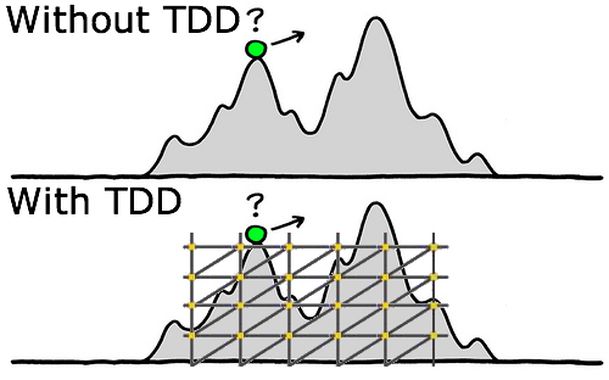- QATestLab Blog >
- QA Basics >
- What Is TDD (Test Driven Development)?
What Is TDD (Test Driven Development)?

TDD is an abbreviation for test driven development. It is the special practice of the code creation used by developers. Not all development teams practice TDD.
One may think that only developers should be aware of TDD, as it does not concern software testing. It is not really so. Test driven development helps the specialists from software testing company to better understand the software and associated tests. It simplifies the execution of acceptance testing.
It is important to clarify what specialists take part in TDD and define the main steps of this practice.

Who Is Involved in TDD?
- Developer
- Tester
- Customer
Every expert plays his own role and performs the defined tasks of the TDD Cycle.
What Are the TDD Steps?
- A failing test is defined and created.
- Developer writes the amount of the product code which will be enough for making the test pass.
- The code is refactored according to the existing standards with the aim of making it clean and more efficient.
TDD provides the immediate feedback on the code functioning. This quick feedback loop can be used by testers. In general, test driven development concerns the design of the code.
To perform mobile testing, website testing or any other software product testing, the specialists should apply different principles and use various techniques in their work.
Learn more from QATestLab
Related Posts:
- Automated Testing During Test-Driven Development
- Software Development (Doesn’t) Need Independent QA
- Five reasons why developers are not good testers







No Comments Yet!
You can be the one to start a conversation.